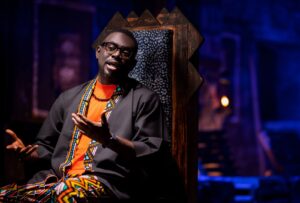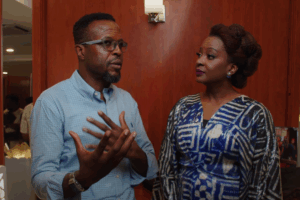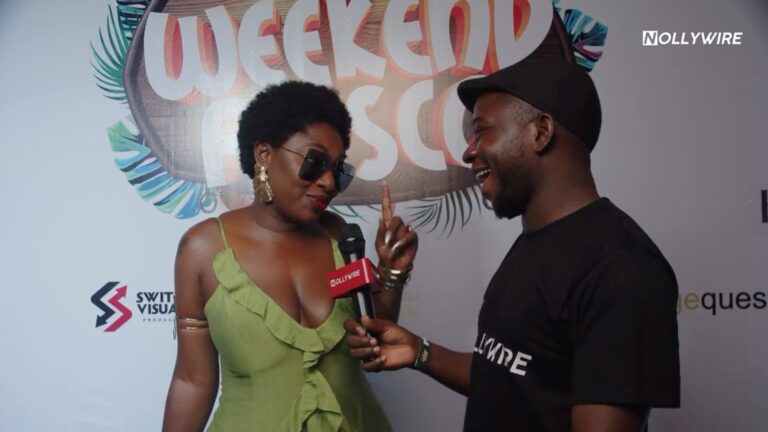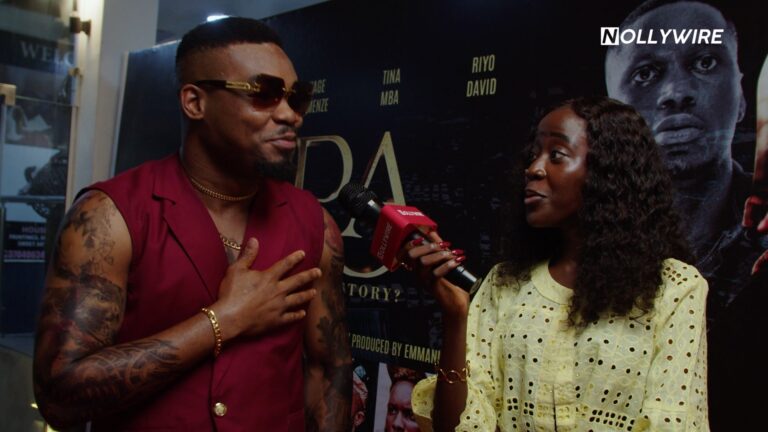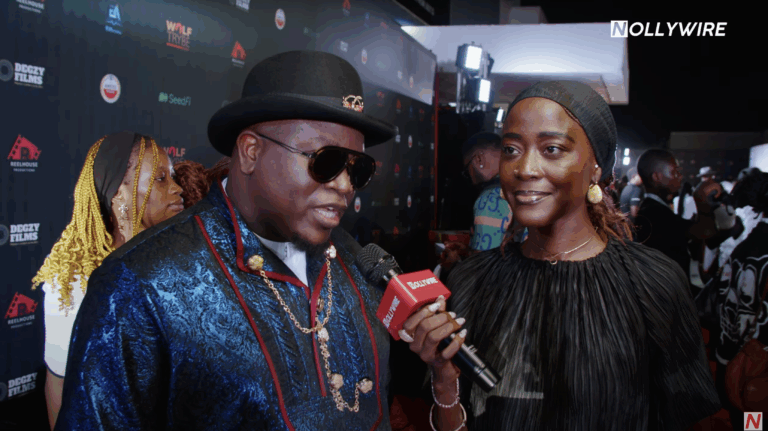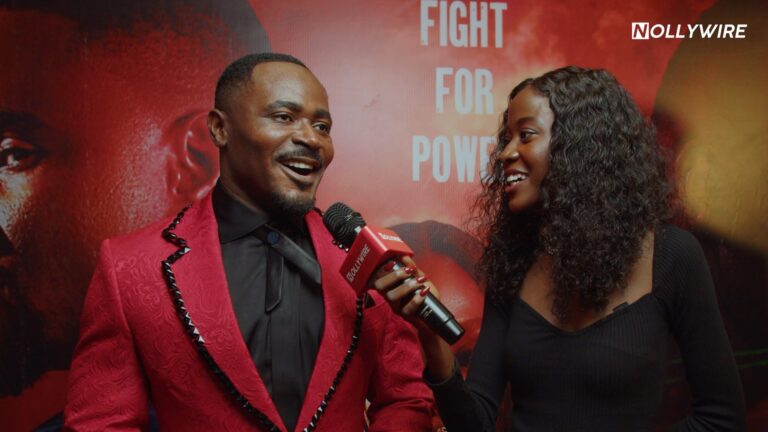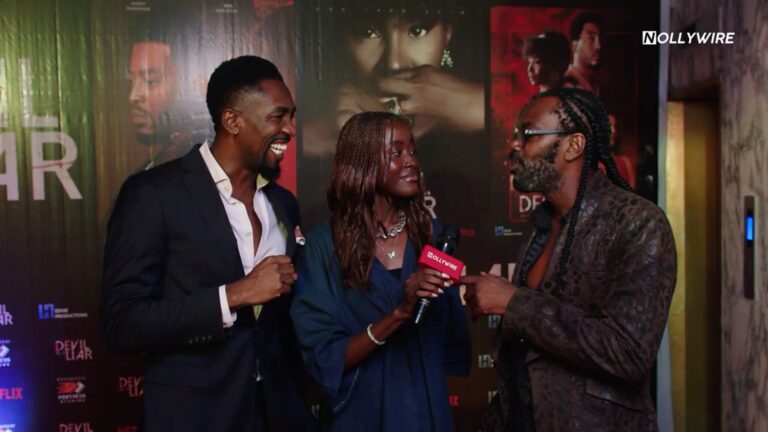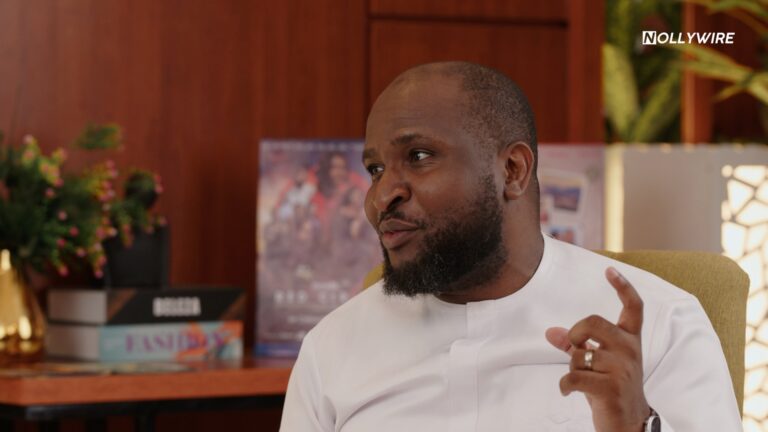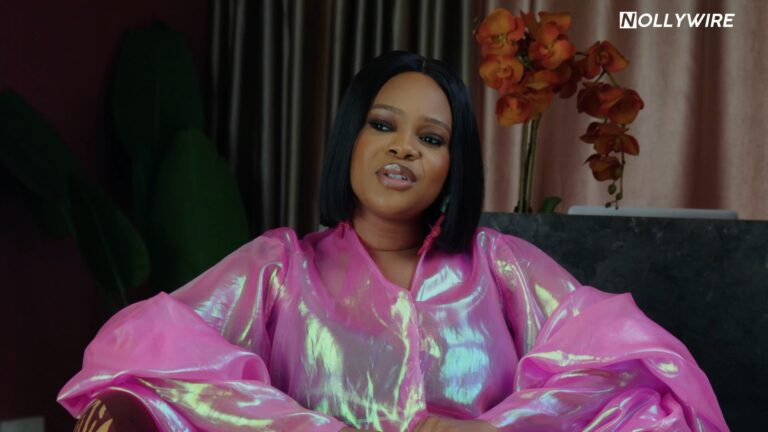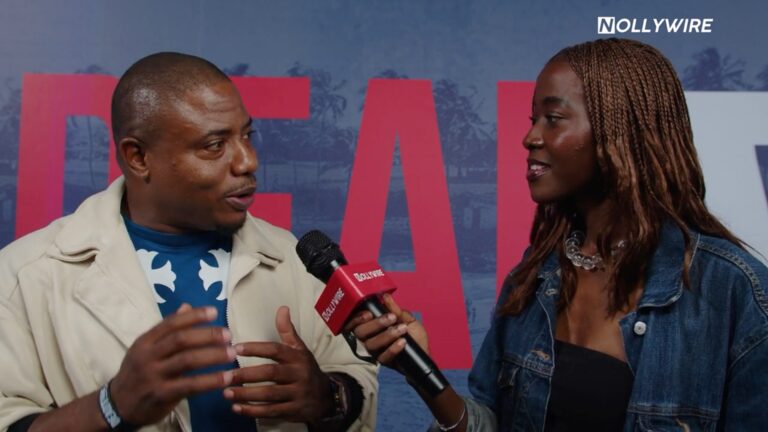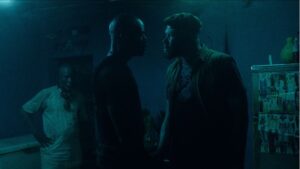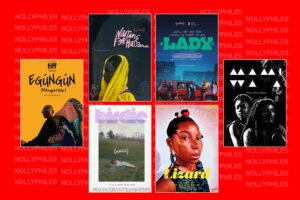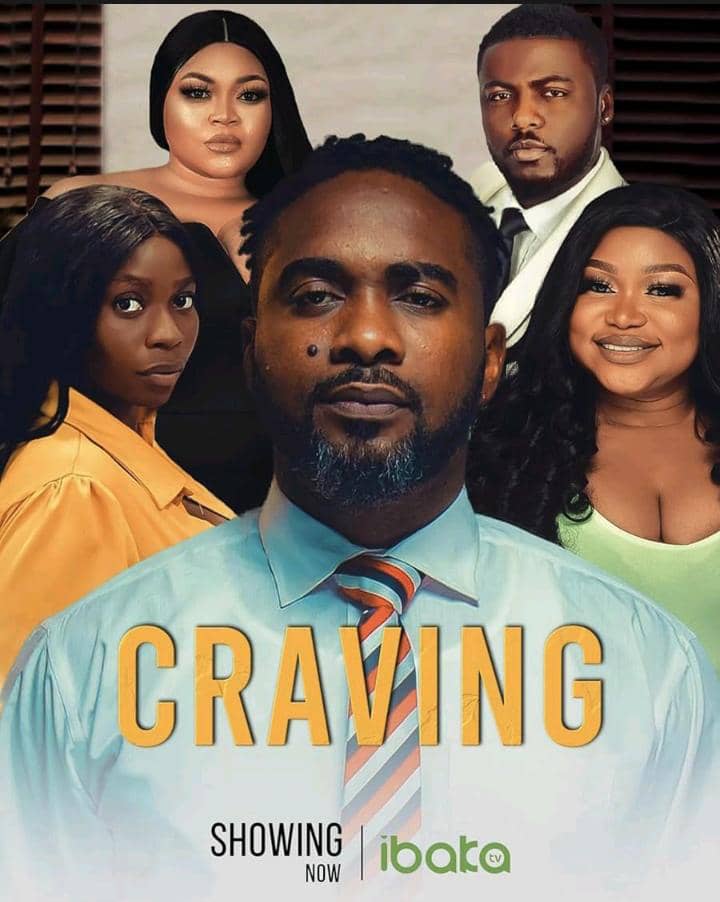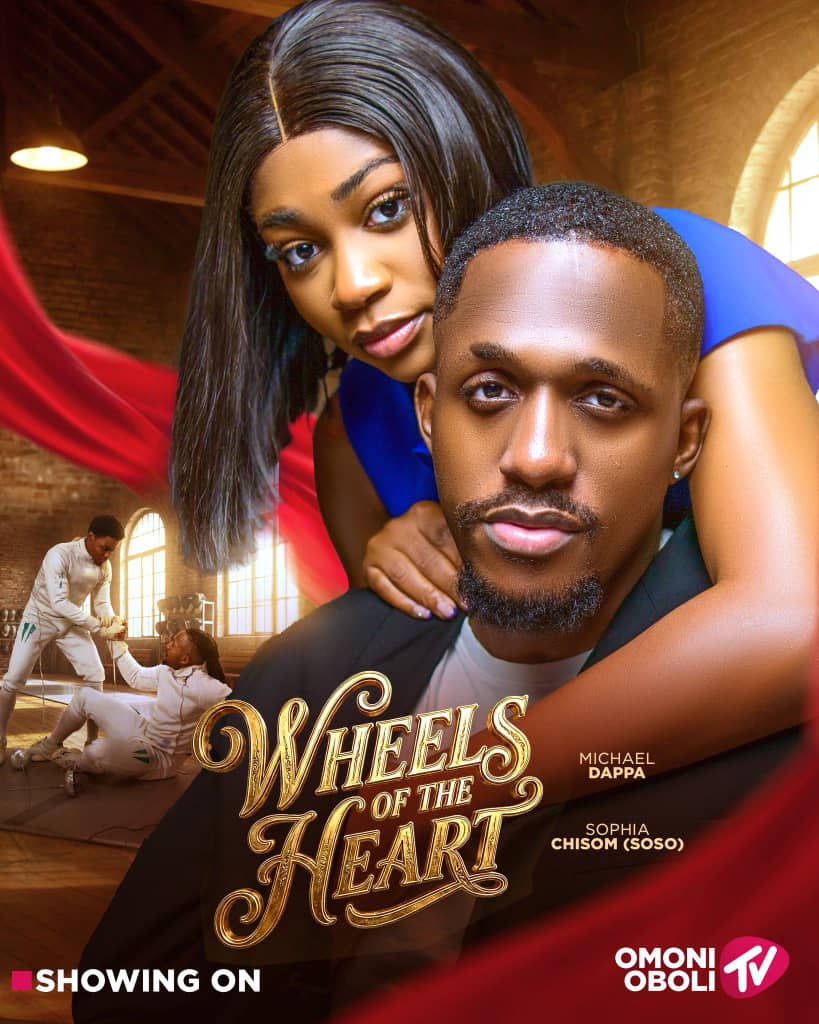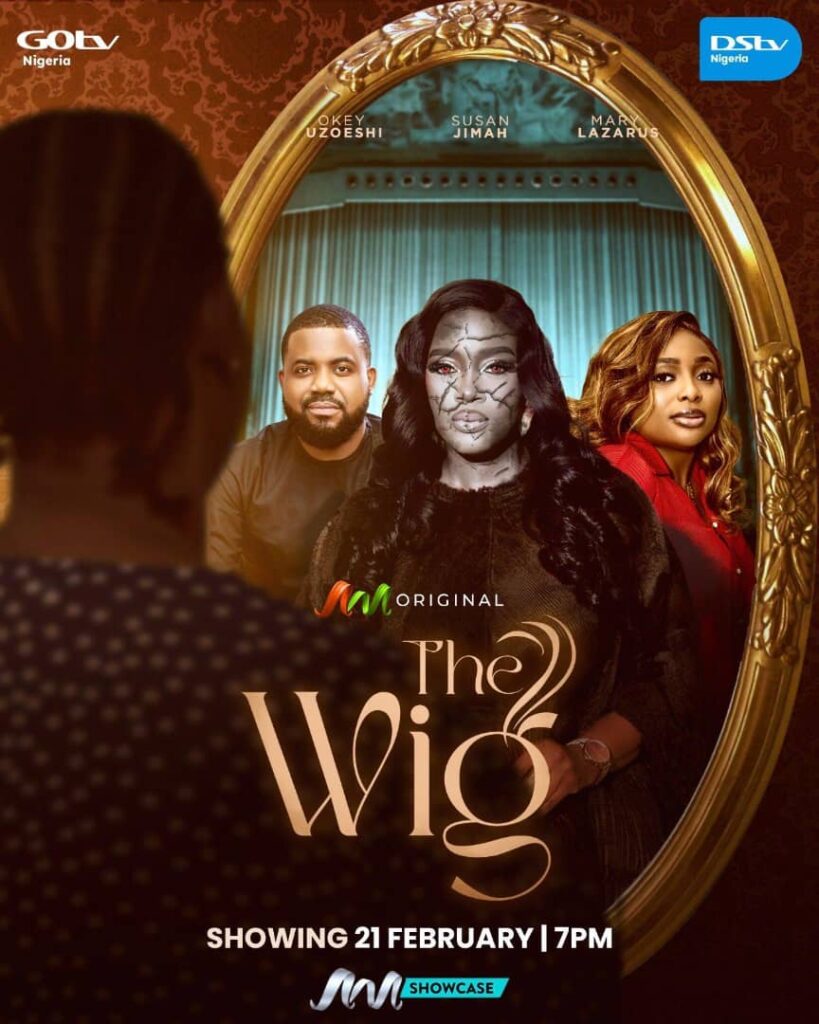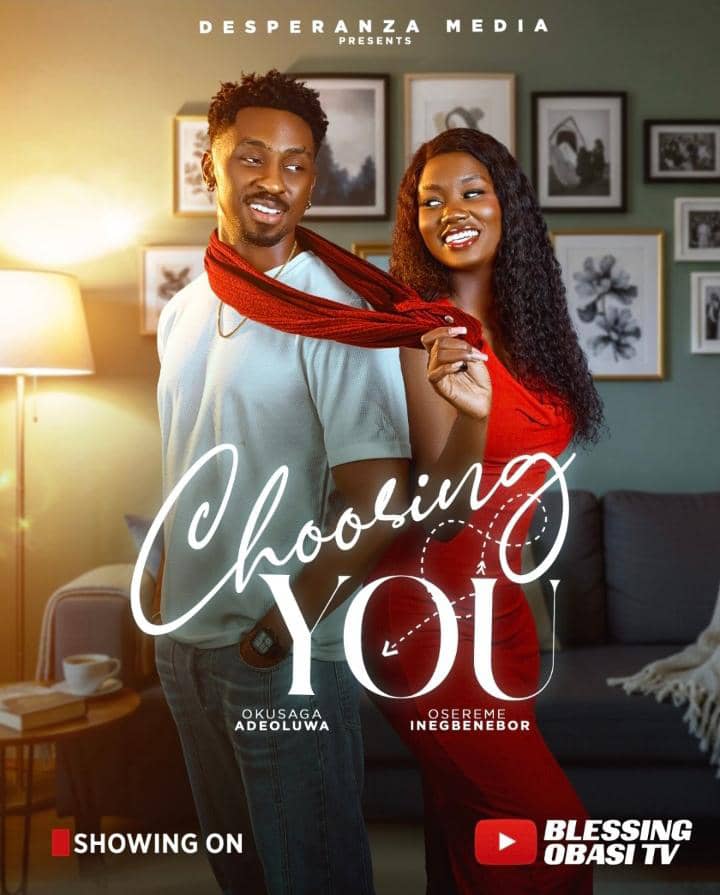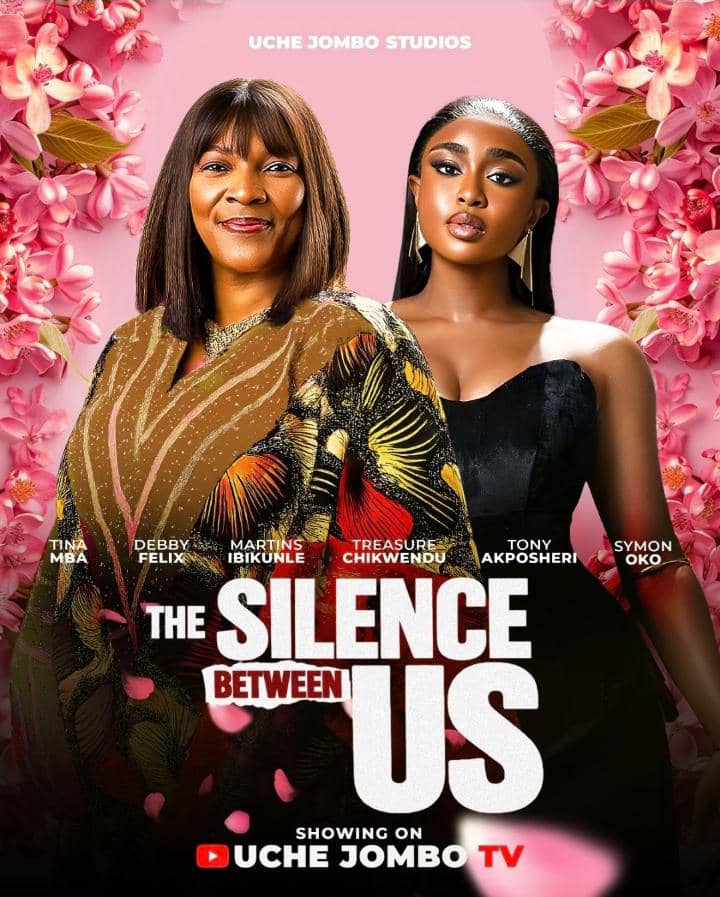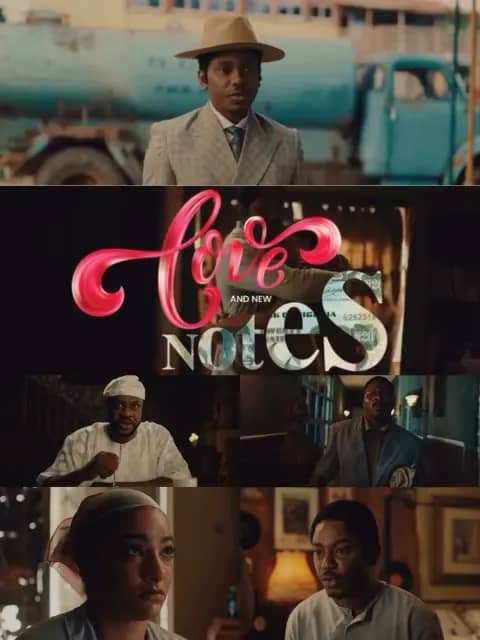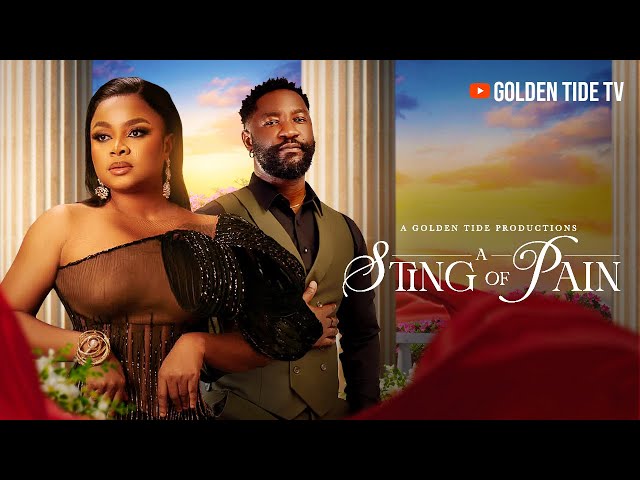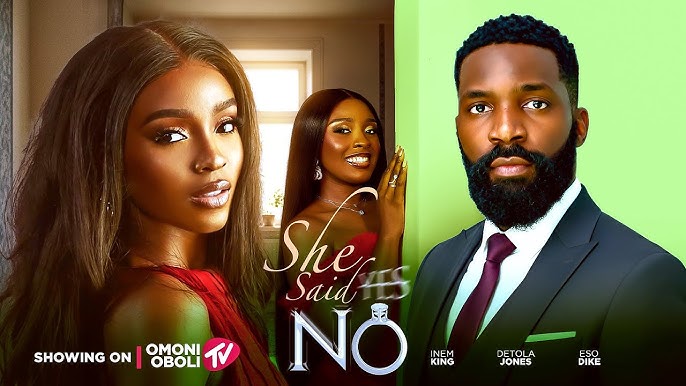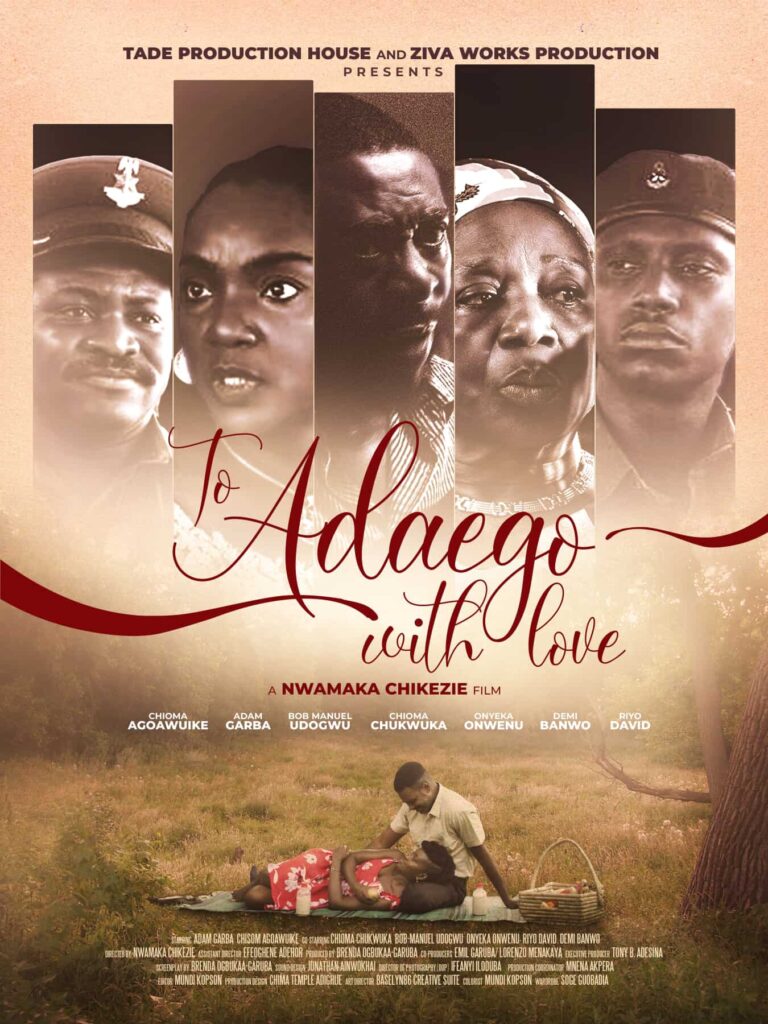In ‘Aso Ebi Diaries’, directed by Biodun Stephen and crafted by Janet Aiyebusi and Lady Laide Daramola, the screenplay is handled by Frances Okeke, Elizabeth Gomez (Nancy Isime), a Lagos socialite, has her world turned upside down when her family’s fortune is lost to a scandal. Suddenly cut off from the lifestyle she once ruled, Elizabeth turns to her closest allies—Chizzy (Chizzy Alichi) and Temi (Bukunmi Adeaga-Ilori, aka Kie Kie)—and together, they take on high society with coordinated Aso Ebi, camera-ready confidence, and unshakeable ambition.
Fashion becomes their social currency, and every appearance is part of a carefully crafted comeback. But Elizabeth’s rise is complicated by love. She is faced with a choice between Dimeji (Kunle Remi), her loyal friend who’s always had her back, and Kitan (Daniel Etim Effiong), her childhood crush, who re-enters her life under mysterious circumstances.
Speaking about his character, Daniel Etim Effiong says, “My character is in love with Nancy’s character and feels that he deserves the girl because he’s from a well-to-do family. He has everything working out for him.” But as the story unfolds, the character is forced to confront the limits of privilege. “Love is a lot more than money. It’s more than coming from pedigree. It’s about chemistry. It’s about that spark,” he adds. Whether that spark is enough and whether Elizabeth still feels it is a tension that drives the film’s emotional arc.
At the centre of it all is Aso Ebi—the matching fabric worn at parties, weddings, and funerals—which the film treats not just as a costume but as commentary. It’s about belonging, performance, and the subtle power of presentation. For co-writer Lady Laide Daramola, the story is deeply personal. “I moved to Nigeria in 2007 and created my own community. My girl squad were Aso Ebi ladies—we really rocked this town. This film came from that,” she explained. “It’s a celebration of our culture and the way we show up for one another.”
Effiong agrees that Aso Ebi carries weight beyond aesthetics. “It’s about identifying with the family celebrating. Fabric is embedded in our culture. We celebrate the texture, the colour, and the flamboyance; it’s who we are as Africans.”
Bukky Wright plays Elizabeth’s mother, a woman who’s been through Lagos society’s highs and lows and wants her daughter to tread carefully. “She’s the typical woman who’s been there, done that. And though I have sons, I always wanted a daughter so this role hit close to home,” Wright shared. Her character brings a necessary counterbalance to Elizabeth’s youthful confidence, offering perspective without dampening her fire.
The ensemble is stacked with familiar faces: Shaffy Bello, Queen Salawa Abeni, Stephanie Coker, Jide Kosoko, Kalu Ikeagwu, and Denrele Edun. Visually, the film leans into its Lagos setting with lively cinematography by Barnabas Emordi and crisp editing by Valentine Chukwuma. The costume design, led by Yolanda Okereke and Janet Aiyebusi, is central, and the soundtrack by Tolu Obanro keeps things moving with an upbeat, contemporary feel.
‘Aso Ebi Diaries’ is not just about the parties or the fashion. It’s about what people do to maintain their place, the lines between survival and performance, and the power of female friendship in a city that can turn cold fast.



